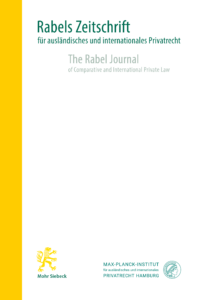Symeonides on Private International Law Bibliography 2024: U.S. and Foreign Sources in English

Over the past 19 years, Professor Symeon C. Symeonides (Alex L. Parks Distinguished Professor of Law, Dean Emeritus) has been providing scholars, researchers, practitionners and student with a comprehensive and extensive compliation of Parivate International law bibliogrphy.
The 2024’s compilation (Private International Law Bibliography 2024: U.S. and Foreign Sources in English) includes 58 books and 427 journal articles, covering a wide range of topics within private international law (conflict of laws) and related fields.
The bibliography addresses key areas such as prescriptive jurisdiction, extraterritoriality, federal-state conflicts, and specific aspects of arbitration. It also encompasses legal issues related to foreign relations and international human rights, providing a valuable reference for those studying or working in these domains.
This compilation serves as a significant resource for legal scholars and practitioners, offering a thorough overview of the literature in private international law and its associated fields.
Access to the bibliography is available on Prof. Symeonides’ SSRN page here.
I would like to take this opportunity to extend my heartfelt congratulations to Prof. Symeonides for his unwavering commitment and remarkable contributions. His bibliography continues to be a cornerstone of legal research and a testament to the enduring importance of meticulous scholarship.




 The last issue of RabelsZ 2024 has just been released. It contains the following contributions (which are all available
The last issue of RabelsZ 2024 has just been released. It contains the following contributions (which are all available  Since its inception in 2001, the annual survey on Chinese judicial practice in private international law, published by the
Since its inception in 2001, the annual survey on Chinese judicial practice in private international law, published by the 